I find myself emotionally conflicted as I write this last blog from Zimbabwe. I head back to Kansas City in 5 days leaving Aby and our work here behind but in very capable hands. I remain hopeful she will be able to get a US Visa to come to the states for a visit this year. Please keep her in your prayers as visas to the US are difficult to get for Zimbabweans. We are also at a mission critical juncture in our project development and she has a great deal of groundwork to complete before she will be free to come. While I am sad to leave, I am equally excited to see my children and grandchildren as its summer school holidays and they will be up for some wonderful adventures.
While things here on the home front in Zimbabwe are settling down, things on the organizational side are heating up. The stress level the last 3 months has been very high as we set up both home and office. It is hard enough trying to get one organization up and running let alone two simultaneously! Upon reflection, I struggled most of last year with what God was showing me and did my very best to react to events as they were unfolding in rapid succession. It felt as though God had T-Boned my life in my blind spot. I didn’t see it coming when suddenly I realized I was on a completely different road from what I had been planning! Responding to divine intervention required several significant sacrifices and changes. I hope I have been faithful in what He has been asking of me. I tend to error on the side of caution never wanting to be presumptuous about what I think God is doing. Having said that, I am on a road where He is asking of me to take huge risks and trust in His faithfulness. It is a big ask, but years ago I bowed my knee to Him and committed to be a bond-servant. I plan on honoring my commitment.
 We hope one day the National Centre for Peace will be a facility in the center of Zimbabwe which will bring this diverse nation together around a commitment to maintaining peace and subsequently produce prosperity for future generations. In order to make that happen, the healing and reconciliation process must start now. Generational cycles of violence have torn this area of the world apart for centuries. There is a new generation on the rise now which has recognized the futility of this way of life and crying out for significant change. In fact, if the two older generations do not respond to their cry for change, they will quickly find themselves irrelevant and end up in the dust bin of history. As the ancient Greek philosopher Heraclitus once proclaimed, “The only constant is change”. The real question in front of us is… what will that change look like?
We hope one day the National Centre for Peace will be a facility in the center of Zimbabwe which will bring this diverse nation together around a commitment to maintaining peace and subsequently produce prosperity for future generations. In order to make that happen, the healing and reconciliation process must start now. Generational cycles of violence have torn this area of the world apart for centuries. There is a new generation on the rise now which has recognized the futility of this way of life and crying out for significant change. In fact, if the two older generations do not respond to their cry for change, they will quickly find themselves irrelevant and end up in the dust bin of history. As the ancient Greek philosopher Heraclitus once proclaimed, “The only constant is change”. The real question in front of us is… what will that change look like?
We have the most amazing opportunity in front of us to influence an emerging generation. Currently, 60% of the nation is 40 years or younger. Within the next few years, over 1 million new voters will become eligible. They are not tainted by the nation’s painful pre-1980 colonial history, and like many other Millennials around the globe, less interested in the past and far more interested in their future. They are globally connected and very aware of how their peers around the world live. They are intentionally focused in finding solutions to significantly turn things around and put their nation on a new trajectory. The upside side potential for Zimbabwe is vast. Its once globally esteemed agricultural sector is slowly on the road to recovery. The mineral wealth under the ground is estimated to be in the trillions and the population highly educated. Many Zimbabweans who fled from here to South Africa after the political violence of 2008 are now running companies there.
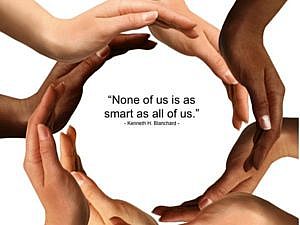 Our vision for the Centre is for it to be truly non-partisan embracing the full diversity which exists here. As we have discovered over the last 12 months, there are many other people who are passionate about healing the nation. They bring a wealth of knowledge and skill sets which if combined with other organizations could bring a much more holistic and effective approach to healing the nation. We are diligently pursuing a more collaborative approach to peace-building and reconciliation.
Our vision for the Centre is for it to be truly non-partisan embracing the full diversity which exists here. As we have discovered over the last 12 months, there are many other people who are passionate about healing the nation. They bring a wealth of knowledge and skill sets which if combined with other organizations could bring a much more holistic and effective approach to healing the nation. We are diligently pursuing a more collaborative approach to peace-building and reconciliation.
Our vision to build a mobile “classroom” much like George Washington Carver used to educate rural farmers in the US has been received with great enthusiasm. The challenge in front of us is raising the $165,000 we need to build the truck in South Africa. Once completed, it will enable us to visit the rural areas and stay for a week or more at a time in an area. It will also allow us the opportunity to do a more thorough job of healing the broken hearted and educating people on issues such as Trauma Healing, PTSD, The Power of Forgiveness, Conflict Resolution, Genocide Prevention and many others. We believe this collaborative approach, with many other NGO’s bringing their “best practices” into the mix, will be highly effective. We believe it is our role to facilitate bringing people together providing both the environment and the tools for them to make a lasting impact.
 As we continue with our research, it has become increasingly clear economics plays a significant role in the peace building process. A great deal of conflict is rooted in the poor fighting each other over limited resources. Fear is a huge factor which drives conflict. People are terrified by the thought of losing what little bit they have and will resort to extreme measures to retain it. Equally true, as the facts bear out, peaceful nations prosper. The most peaceful nations have the best economies and minimal poverty. In our holistic approach, we are determined to bring economic transformation starting at the local level. In analyzing the failure of many other economic strategies which have started out with such promise but a few years later were in disrepair, we realized that they had tried to install a new system on top of relationally broken communities. Once the trainers had left, old unresolved conflicts reemerged, and the project ended up as broken as the people.
As we continue with our research, it has become increasingly clear economics plays a significant role in the peace building process. A great deal of conflict is rooted in the poor fighting each other over limited resources. Fear is a huge factor which drives conflict. People are terrified by the thought of losing what little bit they have and will resort to extreme measures to retain it. Equally true, as the facts bear out, peaceful nations prosper. The most peaceful nations have the best economies and minimal poverty. In our holistic approach, we are determined to bring economic transformation starting at the local level. In analyzing the failure of many other economic strategies which have started out with such promise but a few years later were in disrepair, we realized that they had tried to install a new system on top of relationally broken communities. Once the trainers had left, old unresolved conflicts reemerged, and the project ended up as broken as the people.
Our strategy looks like railroad tracks, two parallel rails running side by side; one is Peace Building and the other Economic Development. Again, because of our strong commitment to a collaborative approach we have enlisted the help of two of our dear friends who both have practical solutions lifting the poor out of poverty. With 70% of the population in Zimbabwe farming, and vast tracts of farming land sitting fallow, we think agriculture is the low hanging fruit and the key to launching economic transformation. Foundations for Farming and Turn Matabeleland Green have years of experience in that sector and we will rely heavily on their vast knowledge base and organizational structure.
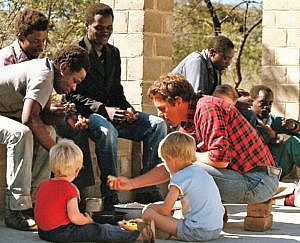 In a personally exciting development, it looks like one of our first projects we are going to be working on collaboratively is located at the villages of Mbizingwe and Ntabemnyama. For those of you unfamiliar with my story, in 1984 I came to Zimbabwe in search of the Community of Reconciliation. The community was purported to be made up of former combatants of the 1970’s Bush War here who were figuring out how to forgive and move forward together. The livelihood of the community was based on agriculture and they were far ahead of the rest of the country in their thinking and methodology. My experience at that community would have a huge impact on my life. Tragically, in 1987, sixteen of my friends were killed there and the place was burned to the ground. Today there are only ruins and weeds which greet you. Equally tragic, the local people were driven back into poverty as their livelihoods were stripped away from them. The land that was once a center for peace was taken over by War Veterans and renamed “Ntabemnyama” meaning the “Dark Hill”.
In a personally exciting development, it looks like one of our first projects we are going to be working on collaboratively is located at the villages of Mbizingwe and Ntabemnyama. For those of you unfamiliar with my story, in 1984 I came to Zimbabwe in search of the Community of Reconciliation. The community was purported to be made up of former combatants of the 1970’s Bush War here who were figuring out how to forgive and move forward together. The livelihood of the community was based on agriculture and they were far ahead of the rest of the country in their thinking and methodology. My experience at that community would have a huge impact on my life. Tragically, in 1987, sixteen of my friends were killed there and the place was burned to the ground. Today there are only ruins and weeds which greet you. Equally tragic, the local people were driven back into poverty as their livelihoods were stripped away from them. The land that was once a center for peace was taken over by War Veterans and renamed “Ntabemnyama” meaning the “Dark Hill”.
In November of last year, my friend Joice Dube who is from Mbizingwe and others put on a Memorial Service for their deceased friends. It was a powerful day as we memorialized the nation’s first Peacemakers, both the living and the dead. It was a battle to pull the event off as people were fearful but something broke that day and a new openness has since developed. The civil authorities contacted me afterwards wondering if we could do other such healing events in the region. The local pastors then approached me about helping them restore the once vibrant agriculture that was prevalent there. It was an intriguing proposition. I talked with my friend and colleague Peter Cunningham the founder of TMG and he enthusiastically said he was committed to seeing that area restored.
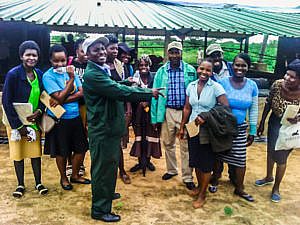 Earlier this year we helped underwrite some of the training costs for 12 members of the two communities to receive their first training at the Ebenezer Training Centre. They were very excited about what they learned and are ready now to roll up their sleeves and go to work. Since I’ve been back on this trip, our ideas and plans for the area have increased exponentially. The TMG leadership believes the villages can become an economic hub for the whole area and are committed to making that happen. On June 17th, the Project Managers for TMG met with all the Pastors in the area to envision them with what is possible. Next up will be the Traditional Leaders i.e. Chief and Headmen and then the Civil Authorities. Due to my previous relationship with the Rural Council I am already aware of how committed they are to this happening. Its an exciting time but lots of hard work lies ahead.
Earlier this year we helped underwrite some of the training costs for 12 members of the two communities to receive their first training at the Ebenezer Training Centre. They were very excited about what they learned and are ready now to roll up their sleeves and go to work. Since I’ve been back on this trip, our ideas and plans for the area have increased exponentially. The TMG leadership believes the villages can become an economic hub for the whole area and are committed to making that happen. On June 17th, the Project Managers for TMG met with all the Pastors in the area to envision them with what is possible. Next up will be the Traditional Leaders i.e. Chief and Headmen and then the Civil Authorities. Due to my previous relationship with the Rural Council I am already aware of how committed they are to this happening. Its an exciting time but lots of hard work lies ahead.
On July 3rd the TMG Leadership will host an envisioning day in the villages with the Pastors, Traditional leaders and Civil leaders all encouraging people to participate. Our goal is to reach an eventual buy-in of 1,500 families between the two villages. Here is what lies ahead for them… TMG has set up a 4-tier training program but has added a crucial piece to the eco-chain; accessible markets for the farmers. They currently have large contracts to fulfill and needing to purchase; 150 tons of tomatoes per day, 250 tons per year of pecans, 100,000 broilers per week and over 1,000,000 eggs per week. Dairy products are also a huge need. In order to meet this demand, TMG is launching a recruitment drive to sign up and train 200,000 farmers over the next few years. It is an ambitious project, but the demand is there not only from manufacturers and retailers, but consumers who are paying exorbitant costs for food products being imported that should be produced in the country.
 So where does Joseph Company Global come into the equation? All of this needs to be funded both with Seed Capital for training and then Development Capital in the form of loans to the farmers to get their projects off the ground. Our plan is to establish JCG as an investment entity empowering farmers and later other businesses which will naturally develop out of a vibrant agricultural economy. We are currently looking at raising $1.75 million from investors who have a Compassionate Capitalism mindset and see how money when used rightly, can be a powerful tool in helping people dig themselves out of poverty. One other exciting piece of the equation is the Zimbabwean businessman and Telecom magnet Strive Masiyiwa has committed to building out Solar Farms in rural area through his company Ugesi Energy. If we can get 1,500 producing families operational, setting up electrical grids and internet hubs via Ugesi and Econet would allow for the development of other goods and services. I am tremendously excited about the prospects and the fact we can launch this in an area which means a great deal to me. I believe my friends are gathered together in heaven smiling that what they had dreamed out in 1982 might come to fruition.
So where does Joseph Company Global come into the equation? All of this needs to be funded both with Seed Capital for training and then Development Capital in the form of loans to the farmers to get their projects off the ground. Our plan is to establish JCG as an investment entity empowering farmers and later other businesses which will naturally develop out of a vibrant agricultural economy. We are currently looking at raising $1.75 million from investors who have a Compassionate Capitalism mindset and see how money when used rightly, can be a powerful tool in helping people dig themselves out of poverty. One other exciting piece of the equation is the Zimbabwean businessman and Telecom magnet Strive Masiyiwa has committed to building out Solar Farms in rural area through his company Ugesi Energy. If we can get 1,500 producing families operational, setting up electrical grids and internet hubs via Ugesi and Econet would allow for the development of other goods and services. I am tremendously excited about the prospects and the fact we can launch this in an area which means a great deal to me. I believe my friends are gathered together in heaven smiling that what they had dreamed out in 1982 might come to fruition.
In Zimbabwe now it often feels like we are walking through valleys as dark as death itself. With long power and water outages combined with skyrocketing inflation, one feels they are in constant survival mode. It’s exhausting! But… I have HOPE as change is in the wind, a new prophetic generation is on the rise and God has a plan for the nation. We have a mountain to climb together which will take us out of a valley. It is going to be a tough climb, but I can assure the view from the top will be breathtaking! Thank you for partnering with us in this endeavor and I know it is one near and dear to the heart of God.
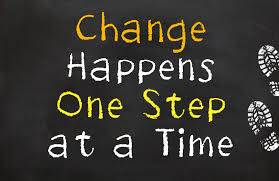

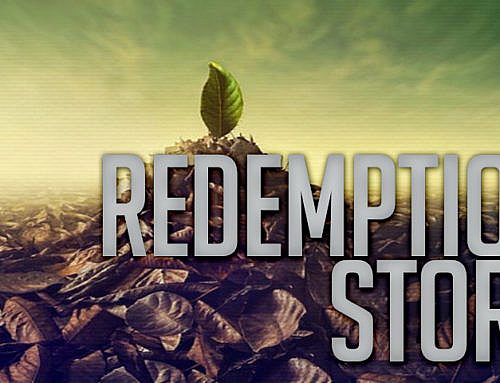



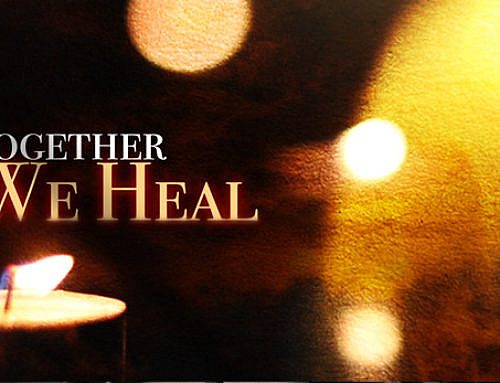
Leave A Comment